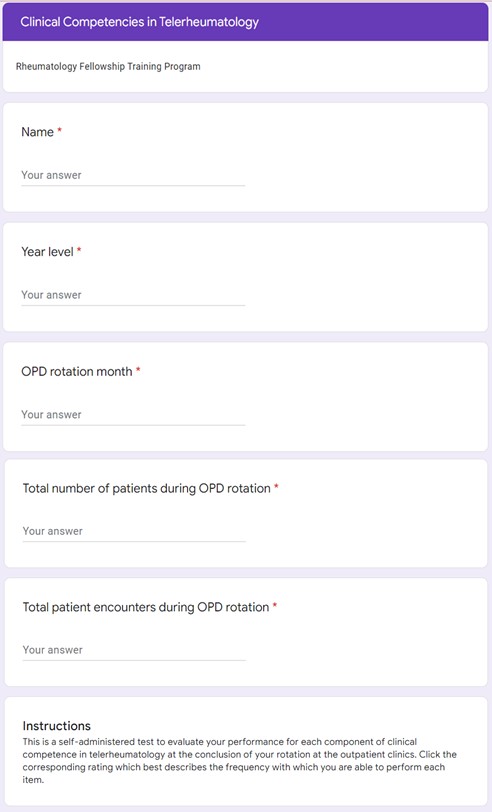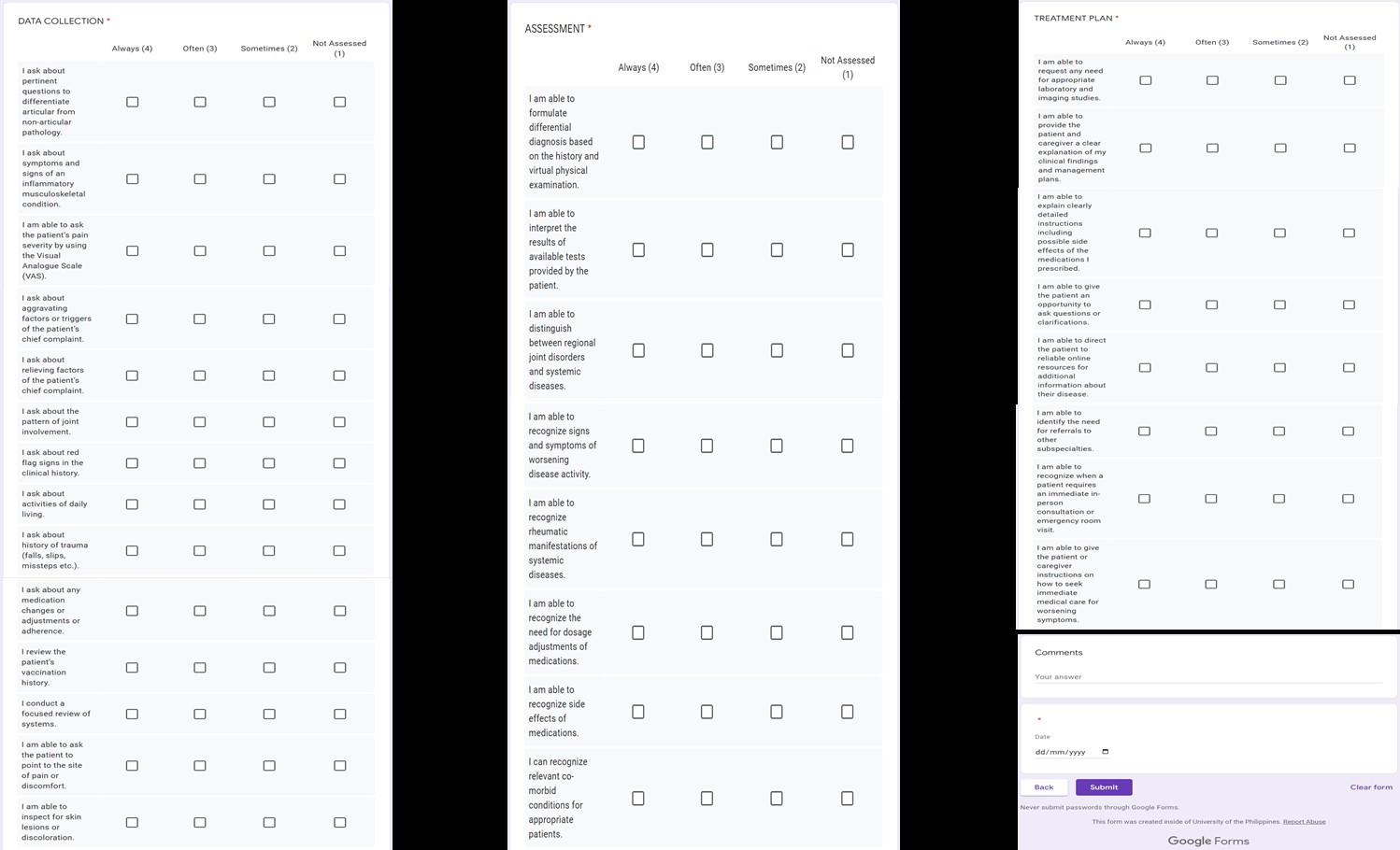Session Information
Session Type: Poster Session B
Session Time: 10:30AM-12:30PM
Background/Purpose: The St. Luke’s Medical Center (SLMC) Rheumatology Fellowship Program is a 2-year accredited program devoted to the diagnosis and management of a broad spectrum of rheumatologic diseases. The COVID19 pandemic has brought unprecedented changes in all aspects of living including health professions education. Rheumatology fellows at our institution became involved in the rapid uptake of telemedicine. This assessment tool aims to evaluate the clinical competencies of rheumatology fellows in telerheumatology based on the following dimensions: data collection, assessment and treatment plan. It will help the trainee monitor one’s performance in the use of telehealth when dealing with patients with rheumatologic disease.
Methods: This paper describes how an online, self-assessment tool for “Clinical Competencies in Telerheumatology” was developed. Part I involved item pool creation through review of related literature on telemedicine in rheumatology and interviews with rheumatologists’ experience on teleconsultations. Part II was scale development and involved content and face validation. The qualitative method of content validation utilized expert judgement of a panel of rheumatologists. However, the ultimate decision of adding, removing or retaining items fell solely on the author. Face validation was performed by asking another panel of rheumatologists to evaluate the clarity and face value of the assessment tool based on a set of criteria. Part III involved scale evaluation using Cronbach’s alpha. Current rheumatology fellows-in-training from all the accredited rheumatology training institutions in the Philippines were invited to participate in the pilot study. Responses from the participants were plotted in Microsoft Excel and the Cronbach’s alpha was calculated. Using the analysis ToolPak, the ANOVA 2-factor without replication was chosen and the input range identified.
Results: The Cronbach’s alpha for this assessment tool is 0.89. This means that the instrument has good internal consistency or reliability. It is noteworthy, however, that the target population was not reached because only 21 fellows responded.
Table 1 shows the calculation of the Cronbach’s alpha.
| Source of variation | SS | df | MS | F | P-value | F crit |
| Rows | 39.63175 | 20 | 1.981587 | 9,10187 | 5.47E-24 | 1.588692 |
| Columns | 24.42698 | 29 | 0.84231 | 3.868916 | 1.58E-10 | 1.487131 |
| Error | 126.273 | 580 | 0.217712 | |||
| Total | 190.3317 | 629 | ||||
| 0.89 |
Conclusion: In conclusion, this tool may be used to reliably measure clinical competencies in telerheumatology of rheumatology fellows in training.
Improvements are still warranted to further enhance the utility of this tool. Recommendations are: (1) to increase the sample size of the population in the pre-testing phase; (2) conduct an exploratory and confirmatory factor analysis to further determine how well the items measure the construct and (3) supplement this tool with a third-party/consultant evaluation of the telerheumatology process conducted by the fellow.
To cite this abstract in AMA style:
Reyes - Yap Uyseco S, Traboco L. Creation of an Online, Self-Assessment Tool for “Clinical Competencies in Telerheumatology” [abstract]. Arthritis Rheumatol. 2024; 76 (suppl 9). https://acrabstracts.org/abstract/creation-of-an-online-self-assessment-tool-for-clinical-competencies-in-telerheumatology/. Accessed .« Back to ACR Convergence 2024
ACR Meeting Abstracts - https://acrabstracts.org/abstract/creation-of-an-online-self-assessment-tool-for-clinical-competencies-in-telerheumatology/


